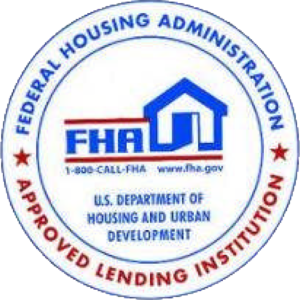Jumbo Mortgages have become more popular recently. Given the recent surge in home prices many people, especially those looking to buy even moderate homes in higher priced areas, need to borrow larger amounts of money.
Not only are these mortgages being used to purchase and refinance houses, but they are also being used as a financial planning tool. With interest rates near historic lows, many financial advisors suggest you borrow as much as you can for as long as you can (just make sure you can afford to pay it back of course). The idea is that if you can borrow for a long period of time at a low fixed rate, when rates rise you can get a higher return investing this money than you pay to borrow it. You get to keep the spread, so the money you are borrowing is making you money. In addition, you get the tax break that comes with mortgage financing.
What Is a Jumbo Mortgage?
A jumbo loan, also known as a non-conforming loan, is a loan that falls above the Federal Housing Administration’s (FHA) conforming loan limit, which in 2021 is $548,250. These loans are designed to help highly qualified borrowers buy more expensive homes.
Characteristics Of a Jumbo Mortgage
Historically, jumbo mortgages have higher interest rates. The spread between conventional conforming loans and non-conforming jumbo loans is .50 to 1 percentage point. They also typically require a 20% down payment.
Lenders want to know that you can make consistent, regular payments on a jumbo loan. Your debt-to-income (DTI) score – your combined minimum monthly payments divided by the amount you earn before taxes – tells lenders what kind of cash flow you have. For jumbo loans lenders typically look for a lower DTI ratio. Lenders will also typically ask for bank statements that show that you have 12 months of cash in reserve to cover payments. Having cash in the bank isn’t the only way to meet these requirements. Lenders may consider up to 70% of your retirement account as well. In some cases, business and gift funds may also count toward reserve requirements.
A credit score, which is a numerical score between 350 and 850 that is based on your payment history and used to measure credit worthiness, is also a big factor in determining eligibility for a jumbo mortgage. These loans typically require a 720 credit score for loans less than one million dollars on one and two family properties.
These mortgages can be used on various types of properties – single family, multi-family, primary residence or investment property.
Why They Have Become Popular
Lenders like EMM Loans have made them more accessible to borrowers by loosening the underwriting criteria. Recent changes now mean that borrowers:
- Only need a 15% down payment on primary residences, 20% on second homes (was previously 30%)
- Minimum credit score of 680 for primary residences with loan amounts up to $1.5 million(previously 700 for loan amounts up to $1 million and 720 for loan amounts over $1 million).
- Minimum credit score for second homes reduced to 680 (from 740) and maximum allowable LTV increased to 80% from 70%.
- Required reserves for primary homes with LTVs that are less than or equal to 80% reduced to 9 months, reduced to 12 months for second homes.
Currently, interest rates for jumbo mortgages and conforming mortgages are roughly the same. This means that by historical standards, jumbo mortgages are even cheaper than the more standard conforming mortgage. This has occurred because:
- Financial uncertainty and global unrest and increased demand for U.S. bonds
- There has been strong demand from banks. Banks look at jumbos as an attractive investment to keep in portfolio. Since they are offering less than 1% on deposits, a 3.2% rate on jumbos, which are seen as relatively safe, is attractive. Also, buying jumbo loans gives them an opportunity to cross sell auto loans, lines of credit, credit cards and other bank services.
Can I Refinance with a Jumbo Mortgage?
Yes. The exact terms of the refinance might vary depending on the purpose but some newly announced guidelines from EMM Loans include:
- Cash out refinances on primary residences now available for up to 75% of the value of the house up to $1 million, 70% of the value of the house over $1 million and up to 60% for second homes.
- For both primary and second homes you can receive up to $500,000 cash back.
Conclusion
If you are looking to buy a home, chances are you might need a jumbo mortgage. The good news is that these loans are quite attractively priced, are easy to access online and easier to qualify for. If this sounds like something you might be interested in click here to talk to one of our advisors.




